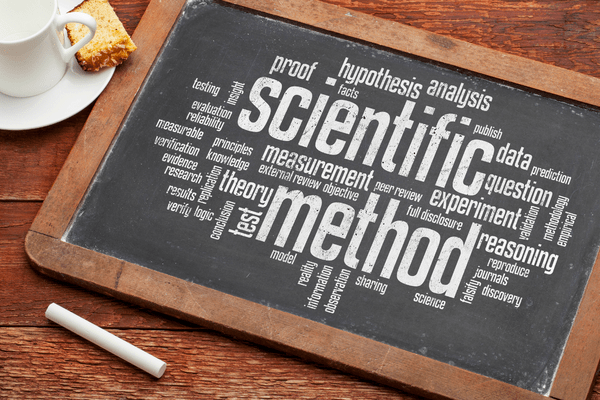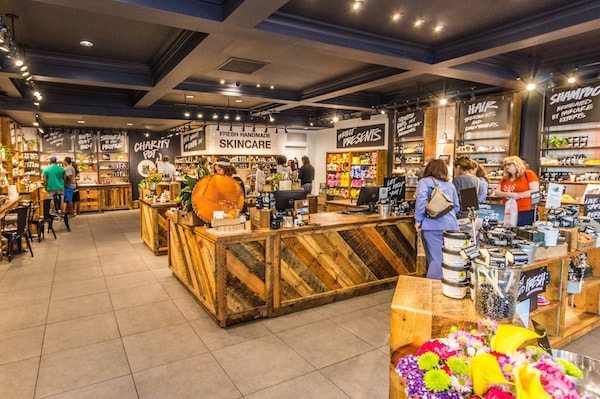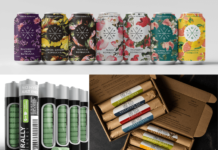
Plenty of food and farm businesses are awesome in theory, but then they just don’t pan out in the real world. Why? While any number of factors could be to blame, there’s often a common theme: Early on, the entrepreneur made assumptions—such as about their target customers, what needs their product or service would fulfill, or how much people would be willing to pay it—and one or more of those assumptions turned out to be wrong.
This happens all the time, across industries. Entrepreneurs think they have a good understanding of customer desires, shopping behaviors, market competition, or other factors, but then they find out the hard way that they don’t. They pour significant time, energy, and money into launching a business, only to discover that they’d overlooked or misjudged something critical. Even big food companies and seasoned businesspeople can fall prey to misassumptions, which means small food and farm startups are especially vulnerable.
So how can you avoid this fate? By actually testing and validating your assumptions early in the process. Yep, even those that seem super obvious—like “everybody knows that!”—can, and probably should, be put to the test.
This is exactly what the Center for Technology Commercialization (CTC) helps early-stage entrepreneurs do. Part of the University of Wisconsin System’s Institute for Business & Entrepreneurship (IBE), CTC guides startups in methodical, disciplined assumption testing. This essentially follows the scientific method: make a hypothesis, develop an experiment to test it, run the experiment, repeat the experiment, gather data, synthesize the data, and make a conclusion.
As CTC director Ibella Yamben, Ph.D., shares in the latest Edible-Alpha® podcast, the organization works with all kinds of startups and develops experiments in an industry- and market-agnostic way. But CTC will also team up with FFI, also part of IBE, to expand the toolbox and tailor its guidance to the food and farm sectors.
Dovetailing with the Lean Startup model, the assumption testing often centers around customer discovery. This involves querying potential customers, really listening to what they say, and then validating what an entrepreneur thinks they heard them say. “The intention of the experiment is to assess something about human behavior that impacts an element of your business model,” Idella says. “Hopefully, you can get an evaluation of something around cost, revenue, or value proposition.”
Customer discovery work is difficult—but doable, especially with the right guidance. It requires a very disciplined approach, asking open-ended non-leading questions, and having a very tuned-in ear. Then in the experimental phase, whether through focus groups or other market testing, entrepreneurs must remain neutral, keep their biases and desires in check, and understand that the results may not match their original hypothesis. They should take the same discipline in synthesizing the information and making conclusions.
And if the results of an experiment don’t align with the original theory, that’s OK. Sometimes this process proves that a business idea is a non-starter. Or, more commonly, it reveals new opportunities or slightly different directions to take. Whatever the findings, doing this work in the beginning stages of a startup can only strengthen its odds of long-term success.

Though it might not sound like it based on its name, the Wisconsin Center for Technology Commercialization has a whole lot to offer food and farm entrepreneurs. Through Ideadvance, SBIR/STTR programming, and other key services, CTC helps startups identify research opportunities to inform commercialization, develop and conduct experiments, and access funding to do this work. Director Idella Yamben, Ph.D., stops by the podcast to discuss the importance of assumption testing and the many ways CTC can help young food and farm businesses start on the right path.
And now, our roundup of the best food and beverage finance news, events and resources from around the web…

Business Model Insights
- There’s a Smarter Way to Approach the Labor Shortage (Food Industry Executive)
- How a smart culture can drive improved plant performance and regulatory compliance while attracting and retaining the next generation of team members.
- What is your highest value activity? (The Intertwine Group)
- Advanced Analytics: Four data-driven strategies manufacturers can use to boost business (NielsenIQ)

Raising Capital
- How one private equity firm is adapting its strategy in today’s volatile environment (Food Dive)
- While there is plenty of money in food, investors are more cautious and prioritizing profitable, established brands.
- Collaborative Capital: The Way Forward for Regenerative Agriculture (Regenerative Food Systems Investment Forum News)
- How food processors can tap into tied-up capital with sale leasebacks (Food Dive)

CPG/National Brands
- Recession-proofing strategies from narrowing a brand’s target audience to personalizing marketing (FoodNavigator-USA)
- Ongoing supply chain challenges and product shortages, plus skyrocketing food prices, are forcing many consumers to try new brands—creating opportunities and challenges for companies vying for their dollars and long-term loyalty.
- What does the Kroger-Albertsons merger mean for brands? ‘It’s a double-edged sword…’ (FoodNavigator-USA)
- More than one path for brands to create climate-friendly foods (New Hope Network)

Market Trends
- Americans’ eating habits adjust to higher food costs (Supermarket News)
- NPD Group spotlights six macro themes shaping the new realities of food and beverage consumption behaviors: economic transition, inflation, income bifurcation, sticky behaviors, total wellness, and the return to convenience.
- Inflation exposes natural, conventional shoppers’ common priorities (New Hope Network)
- Whole Foods Market Forecasts Top 10 Food Trends for 2023 (Whole Foods Market)

Farming and AgTech
- USDA Announces $1 Billion Debt Relief for Farmers (Food Manufacturing)
- Money is the first round of payments aiming to ensure that farmers stay in business or reenter farming.
- Investing in next-gen farmers will create resilient food systems (GreenBiz)
- Challenges and benefits of cover crops vary from year to year (Wisconsin State Farmer)

Deals/M&A
- Packaged seafood producer raises $4 million in funding (Food Business News)
- High-quality canned seafood company Scout will use the seed round funding to accelerate its omnichannel brand strategy and operational expansion.
- Soli Organic secures $125m to expand soil-based vertical farming across the US (AgFunder News)
- The Rounds raises $38M Series A for its sustainable ‘household restocking’ service (TechCrunch)

Industry Events
Virtual events:
- FFI Level 1 Consultant Training: 12/7
- Wisconsin Women’s Business Initiative Corporation Annual Convention Training Session: Manufacturing Resiliency: 12/3
In-person events:
- American Food Manufacturing Summit: 11/8–11/9 in Chicago, IL
- Kosherfest: 11/8 –11/9 in Secaucus, NJ
- Emerging Farmers Conference: 11/12–11/13 in Shoreview, MN
- Private Label Manufacturers Association Show: 11/13–11/5 in Chicago, IL
- Wisconsin Women’s Business Initiative Corporation Annual Convention: 11/15 in Milwaukee, Wisconsin
- Midwest Food Products Association 2022 Annual Convention: 11/29–12/1 in Wisconsin Dells, WI
- Organic Grower Summit: 11/30–12/1 in Monterey, CA
- NOSH Live Winter 2022: 12/1–12/2 in Santa Monica, CA
- BevNET Live Winter 2022: 12/5–12/6 in Santa Monica, CA
- American Seed Trade Association CSS & Seed Expo: 12/5–12/8 in Chicago, IL
- The Winter Fancy Food Show: 1/15–1/17 in Las Vegas, NV
- International Production & Processing Expo: 1/24–1/26 in Atlanta, GA
- Sustainable Foods Summit North America: 1/25–1/26 in San Francisco, CA
- Global Organic Produce Expo: 1/30–2/2 in Hollywood, FL
- The North American Association of Food Equipment Manufacturers Show: 2/1–2/3 in Orlando, FL
- Organic Vegetable Production Conference: 2/3–2/4 in Madison, WI
- UNFI Natural and Conventional Spring and Summer Show: 2/7–2/9 in Orlando, FL



